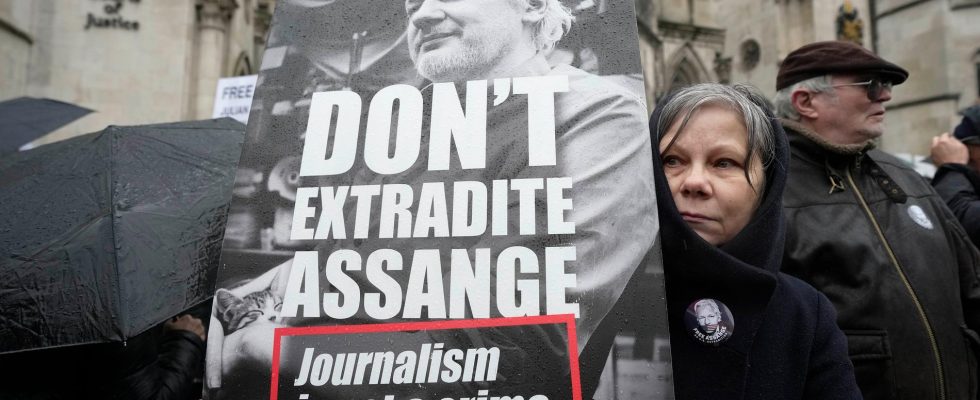unsaveSave
expand-left
full screenActivists demonstrate for WikiLeaks founder Julian Assange in London in February. Archive image. Photo: Kin Cheung/AP/TT
Can he appeal the extradition decision? The jailed Wikileaks founder Julian Assange will be informed today whether he can appeal against a previous decision to be extradited from Great Britain to the United States.
Two high-ranking judges in London are expected to rule at lunchtime on whether the 53-year-old can appeal the extradition order signed by then Home Secretary Priti Patel in 2022.
Julian Assange has tried several times in the past to stop the extradition and appeal the decision.
From embassy to prison
In the US, among other things, a 17-count espionage indictment and one indictment on data abuse await, AP writes. Should Assange be extradited, he risks a very long prison sentence for the publications Wikileaks made in 2010. In the hundreds of thousands of military and diplomatic documents that were leaked via the site, among other things, secret details about the US wars in Iraq and Afghanistan were revealed.
Julian Assange is an Australian citizen and has been imprisoned in the British prison Belmarsh for five years. Before that, he spent seven years at the Ecuadorian embassy in London. He took refuge there to obtain asylum and avoid extradition to Sweden, due to suspicions of sexual crimes during a visit to Stockholm. The Swedish investigation was closed in 2019.
Other ways?
If Assange is refused by the judges in London, there is a possible further recourse: he can appeal to the European Court of Justice (ECHR) in Strasbourg. But it is not considered entirely certain that British authorities will wait with an extradition until such a process is complete.
Last week, information abounded that another way out could be in the works: The Department of Justice in Washington DC is considering having Assange plead guilty to a less serious crime, that of carelessly handling classified information, writes The Wall Street Journal. This would allow him to be released from British prison and avoid extradition. However, it is unclear whether the US has continued along that line
